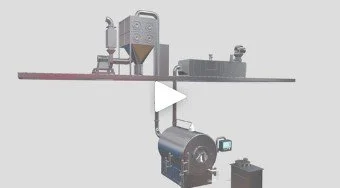
Learning Design & Development
IFPTI’s Instructional Systems Design (ISD) team works with subject matter experts from all spheres to align course content with learning methods and modalities that produce results.
IFPTI’s ISD team outlines the specific course title, description, target audience, and desired result—deeply involved in everything from design and development to rigorous project reviews, walk-throughs and pilots to provide the best possible outcome.
At IFPTI, delivering learning systems when and where needed, and scaling the systems to fit those needs, is key. We provide modalities through online courses, instructor-led classes or even blended approaches to meet almost any objective.
Our eLearning courses focus on blending high-quality information with a delivery experience that caters to the learner’s location. We are able to deliver a final product that makes learning widely accessible, and in a time frame that our clients dictate.
Animation Video
One technology IFPTI’s ISD team utilizes within courses is animation video. These videos help to tell a compelling visual story and drive audience engagement within a training course. This training technique has advanced engagement beyond a “page-turner” to a more immersive learning experience to convey complex ideas in a visually stimulating manner. Animations can be combined with additional techniques to make learning more effective.
A sample of an animation video produced by IFPTI that can be found within the FSPCA Food Defense Awareness for the IA Rule eLearning training.
3D Modeling
IFPTI also creates interactive 3D models for use in eLearning and virtual training. These models provide many benefits to training, including:
Cost efficiency (no need to ship items for viewing);
Accuracy and precision (the model provides a true-to-life 3D visual image);
Interactivity (learners can rotate, enlarge, or zoom in on the model); and
Accessibility (learners have access to items that would otherwise be unavailable).
Interactive 3D models give training participants expanded access to objects. 3D models are becoming essential media types in training with unique qualities. These models can be easily examined, shared, analyzed, and manipulated without damage to the physical specimen. Click on the pacemaker image on the right to open a 3D model created by IFPTI for an FDA course.
360 Interactive Virtual Tours
Recreate a space digitally with accurate measurements, floor plans, with additional features like labeling items, adding additional images, and video which can be shared seamlessly online anywhere.
Competency-Based Learning System
Using the Competency-Based Learning System as our guide, the Instructional Systems Design team focuses on the design and development of instructor-led and online learning materials.
We apply a systematic approach to implementing instructor-led courses through various pilot releases. This enables us to perfect the content and work with the instructors to deliver best-in-class training, with all elements of course instruction included:
Instructor Guides
Participant Manuals
Exercise Workbooks
Supporting Presentations
and Other Course Materials
No matter what food protection or safety training challenges our clients face, IFPTI is there with customizable systems, solutions and training content incorporating and adhering to 508 compliance standards, FOI Act, Privacy Act, and applicable copyright laws.
Restructuring Learning Experiences - 6 Part Series
The evolution of technology is providing an opportunity for a paradigm shift in how training can and should be structured. Technology is providing the training field with the opportunity to break apart traditional in-person training into multimodal learning experiences. This approach is especially important in the food safety regulatory profession, as we are working to build a National Curriculum Standard, and potentially a national standard curriculum for this geographically and jurisdictionally diverse profession.
Over the next few months, we will explore how training should be restructured to take advantage of various modaltities including:
eLearning - self paced, any-time, anywhere learning experiences
Virtual instructor led training (vilt) - instructor/facilitator and participants independently located
Live remote instructor-led learning - participants gathered in a training location, but the instructors facilitate from other locations
Instructor led training - in person learning experiences focusing on hands on experimental learning, which may combine exercises that used to be in multiple courses in the past
Field-based learning experiences - intentionally designed or identified experiences guided by a subject matter expert who is a trained field-based learning facilitator
Field-based competency assessment plays a pivotal role in the evaluation of an individual's capabilities by a standardized assessor, utilizing competency statements that are part of the Integrated Food Safety System (IFSS) National Curriculum Standard (NCS).
Personalized Learning Paths and Competency Assessments



